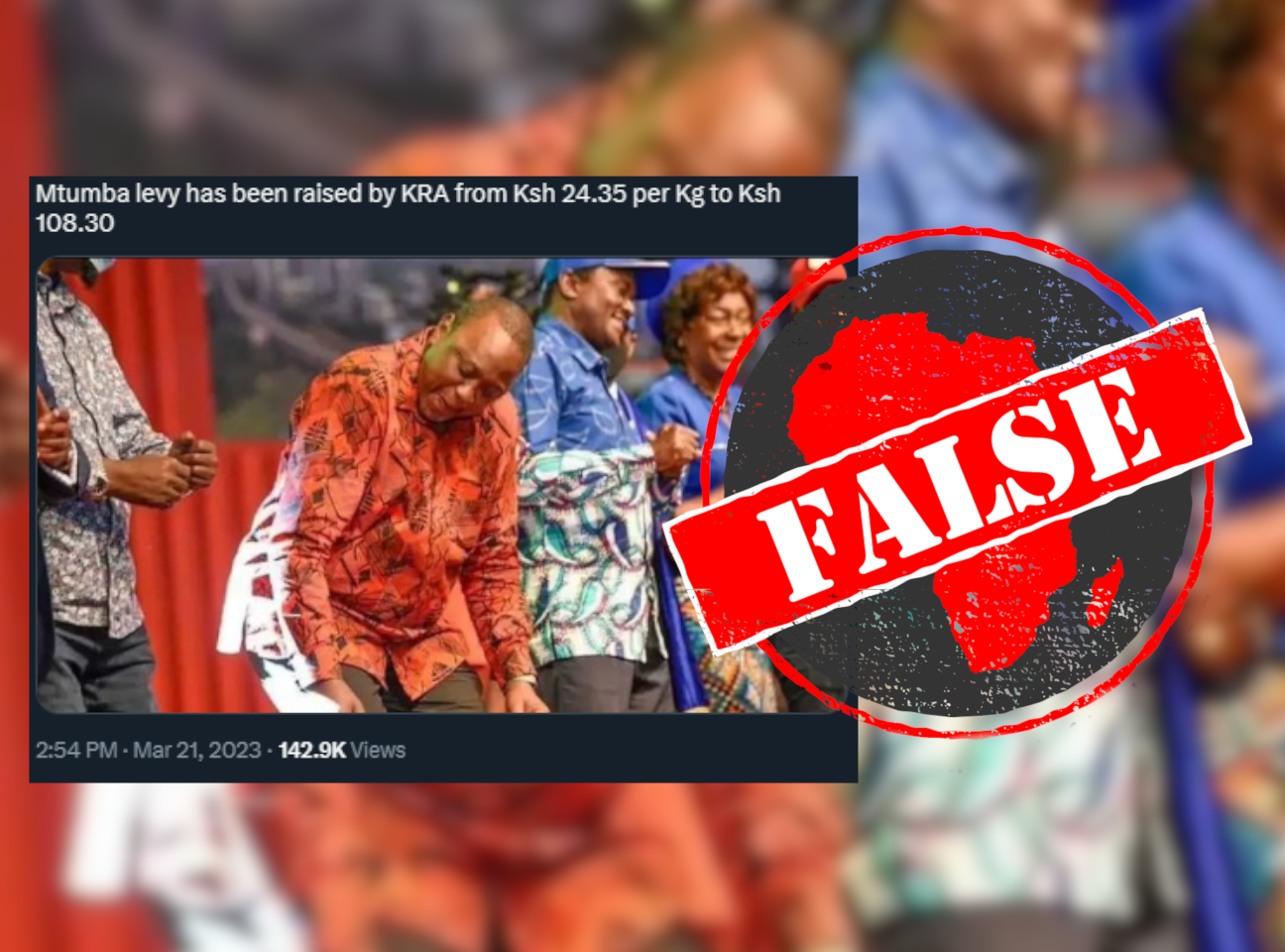IN SHORT: Claims that the Kenya Revenue Authority has increased levies on used clothing recently flooded social media. But the authority says this is incorrect and the levies have been in place since July 2022.
The second-hand clothing trade is popular in Kenya, where it’s known as "mitumba".
The clothes are imported, mainly from western countries. The trade provides employment for many people involved in importing, sorting, cleaning and selling the clothes.
But the trade is also controversial, for reasons ranging from hygiene to its impact on the local textile industry and the environment. It is a hot-button issue, especially during elections.
But claims on social media that Kenya's tax authority has increased taxes on mitumba would have caused alarm among supporters of the booming business.
The claims surfaced in late March 2023, saying that the Kenya Revenue Authority (KRA) had raised levies fourfold, from KSh24.35 to KSh108.30 per kilogram.
Some of the most viewed and shared tweets are here, here and here, which together have been viewed over 600,000 times and retweeted over 1,200 times.
Another top tweet, in the screenshot below, was later deleted. The claim also circulated on Facebook, here and here.
But has the KRA increased taxes on mitumba?

Rates increased in July 2022, not March 2023
On 21 March 2023, the tax authority issued a statement on its official social media accounts, saying recent claims of revised rates for second-hand clothes were false.
They said the rates for used clothing were 35% of the customs value or US$0.20 per kilogram, whichever was higher.
These rates were already published in the East African Community Gazette on 30 June 2022 and have been in force since 1 July. The KRA confirmed these rates were in use.
Social media claims that the rates for used clothing were revised in March 2023 are incorrect.
Republish our content for free
For publishers: what to do if your post is rated false
A fact-checker has rated your Facebook or Instagram post as “false”, “altered”, “partly false” or “missing context”. This could have serious consequences. What do you do?
Click on our guide for the steps you should follow.
Publishers guideAfrica Check teams up with Facebook
Africa Check is a partner in Meta's third-party fact-checking programme to help stop the spread of false information on social media.
The content we rate as “false” will be downgraded on Facebook and Instagram. This means fewer people will see it.
You can also help identify false information on Facebook. This guide explains how.


Add new comment